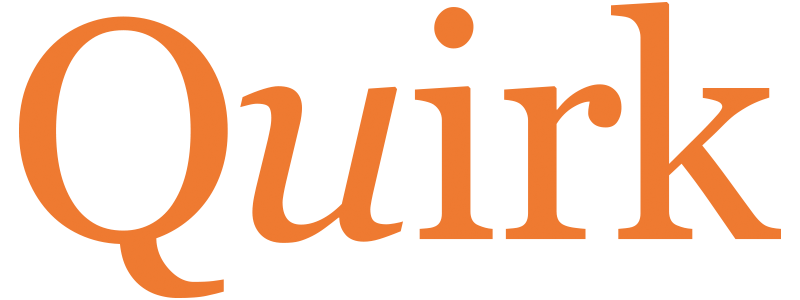The importance of vulnerability to business performance should not be underestimated. Vulnerability promotes authenticity and building connections with people. It can enable an organisation. Vulnerability has been described as being the heartbeat of creativity and innovation and as such impacts in a positive manner on business performance. The very best leaders are able to make themselves more vulnerable. Opening up to staff and asking for help and advice leads to better decisions by exploring all the intellectual expertise within the organisation as a whole. However we do need to manage the vulnerability.
In our next episode of the Quirk Solutions Podcast Series we discuss how vulnerability is a strength in the very best leaders, how it can have a positive impact on business performance and how to manage the process.
Listen to the podcast:
Full Podcast Transcript can be found here:
Vulnerability
Today I wanted to talk about vulnerability and the importance of vulnerability to business performance, but more so than anything, towards leadership. It’s an interesting area to look at because if you think back to when you were at school and everyone was lined up and waiting to be picked in teams, nobody wanted to do it in case you were the kid left at the end that nobody wanted on either of the teams. People don’t like putting themselves in a position where they end up feeling awkward or embarrassed or in a difficult position. It’s just human nature, we like to protect ourselves from that. Rather than allowing ourselves to be in that position we try and avoid it altogether. And this is something that then replicates itself within business.
There’s this sense that when you are in business we’re encouraged and trained to maintain our professional demeanour, which means we are cool, we are objective and that’s seen as professionalism. But the problem is that it lacks authenticity and it lacks connection. If you think about times at which you said to one of your friends, when something clearly is going on, you can see that they are upset and you say “What’s wrong?” You get this slightly fixed grin and a cheery “Nothing, everything is fine”. You know full well that something is wrong. And so you know that the person is being inauthentic. And, we are so good as human beings at reading each other’s body language that even if it is not something as obvious as that, when somebody is trying to maintain their distance, if somebody is trying to put on a leadership style, it becomes so transparent everybody can see through it. And so because of that you lack connection. And if you lack connection with somebody, it makes it even more difficult to work with them. Or certainly to be a leader of them.
Vulnerability builds connection
There is a really good TED Talk all around vulnerability by Brene Brown which I would highly recommend you look at. And she talks about how to connect with people you have to be able to be seen. So you have to be able to give something of yourself across, to do that vulnerability, to build that connection and build that authenticity. And coming back to the piece I spoke about at the start, about how not wanting to be the child that doesn’t get picked for the school team, she talks about having the courage to be imperfect. And I think that’s something that lots of business leaders in particular struggle with. They think that they have to project this image of being all knowing, all seeing and that’s how they see themselves as being strong and good leaders. And that if they demonstrate that they don’t know about a particular area or they allow people a bit of knowledge around that, then it seems a weakness. But it’s not at all, it is a real strength.
And that is something that actually, counterintuitively, that the military does really well. People’s perceptions of the military are that it’s all about barking orders and people doing what they are being told to do without any recourse. But actually a lot of being a military leader is about saying “I don’t know everything there is to know about this particular area. I don’t know everything there is about this particular subject.” At one point in my career I ended up being responsible for putting together the plan to get all the UK combat troops out of Afghanistan. Now it would be insane for me to pretend to know absolutely everything there is to know about every single capability in Afghanistan or how we are going to get them back. But that is sometimes how business leaders see themselves. And there is a real struggle with it, and a struggle with being vulnerable.
Being vulnerable is so important because it starts to enable the organisation. The moment I say to people in my team, “Help me to pull together this strategy, help me to pull together this plan, explain to me the difficulties in certain areas”, you become more innovative, you become more creative. And Brene Brown talks about this in her speech. She talks about vulnerability as being the heartbeat of creativity and innovation. So by trying to hold on to everything, by trying to pretend you know about everything, all that you are actually doing is stifling that innovation, you are stifling that development, because you are not allowing all the other ideas to come forward.
4 myths about vulnerability
There have been other articles written around this time which are really useful and one which builds really nicely from the Brene Brown talk. It’s an article in Forbes, called “The Best leaders are vulnerable” by David K Williams. Within it he explores 4 myths about vulnerability. The first one being that vulnerability is weakness, which I’ve just discussed, and being able to go past that and see it as a real strength. The second myth is that you can avoid it. So, you basically just pretend that you don’t need vulnerability and you can just be your own person and march straight past. But as we’ve already looked at, that just makes you inauthentic and people see straight through you. The third one, which I think is the one that concerns most people, and gives them the greatest degree of anxiety, is that it’s a Pandora’s box. Once you open it up and you say you are going to be vulnerable, there is no stopping it and you’ve got to tell everybody everything, all the time. And that’s not the case. You can be vulnerable in a controlled manner. You can allow yourself to be highly vulnerable to people which you trust in a very clear way. You can allow yourself to be a little bit vulnerable with people you don’t have quite the same relationship with. So, it doesn’t have to be something that is all or nothing, you can do it through graduations, which allows you to control the relationship and the connectivity you have with people. And the fourth myth is that you’ve got to do this alone. And I think again that is something that is actually quite dangerous. If you imagine if you’ve not been the sort of leader, if you think about it after having considered this podcast and you think actually “I am going to be more vulnerable, I am interested in what Chris is saying, I am going to try this”. If you just walk into work one day and suddenly start becoming vulnerable and sharing with everybody, they are going to find that deeply uncomfortable because they are just not used to it.
So one of the things you’ve got to do is to build vulnerability in gradually, build it together as a team. Discuss vulnerability as a team, all of you together. Discuss some of these ideas that I’ve put forward in this podcast. Discuss how you feel about, collectively, what you might think you’d like to get from it, so that as an organisation you become more open to vulnerability and everybody is aware that you’re trying it, and you’re trying it together as a group rather than just all of a sudden someone coming in and sharing it and sharing a little bit too much.
There is a really good Harvard Business Review (HBR) article as well which starts to look at this area and it’s called “What bosses gain by being vulnerable” by Emma Seppala. She talks about the need in which we go around things. Having to project this image of confidence and competence and authority as leaders. And actually the very best leaders are able to make themselves more vulnerable. And she draws the correlation between servant leadership and the principles behind servant leadership, of being authentic and having a values based approach. I think the concern for lots of people is not just to make themselves look silly if they are vulnerable, and a bit more honest and a bit more open. It’s that people would then take advantage. That if you share something or give something or you try to build more of a connection, that there are people there who will use it to their advantage. And they’ll basically use it to come back and attack you.
Creating a safe space to manage vulnerability
But, actually I think if you do it in a controlled manner and if you can generate a framework that allows you to share and to be more vulnerable, then you can start to negate that because it is done in a safe bubble, within a safe environment. We are starting to move towards here, I hope you see, the whole principles and concepts again of the business wargaming that we’re doing and these pressure test and these controlled business challenges. Because within her HBR article, Emma describes that a Stanford study shows that CEO’s are looking for more advice and support and guidance, but two-thirds of them don’t get it. And that then leads to poor decision making and it leads to poor choices being taken because you aren’t exploring all the intellectual expertise within the organisation as a whole. But if you don’t want people to take advantage of you, then how do you go about it?
Well, this is where we come back to this sense of bubble. And of safe space. And whether you do it as a premortem concept, whether you do a devil’s advocate approach, whether you do business wargaming, whether you want to do red teaming. If you create that sense of an environment whereby we are stepping outside of our day to day work here, we are going to artificially create a bubble within which we will go and operate, where this critique and this vulnerability is allowed and we step back out again, then you are managing the vulnerability. You are managing the way in which you go about it and it gives you a degree of control. So for some people, it would be highly useful because they will feel uncomfortable about being vulnerable, so how do they do it in a controlled way that de-risks it for them and makes it feel achievable?
So, in sum, vulnerability is so important because it is about authenticity, it is about connection, it’s about being honest and building up trust and confidence from people in you because you are willing to have the courage to stand up and say “I don’t know this and I am imperfect in some way”. But it leads to so much more within business and it provides your business with so much and your organisation with so much in the way that then people are aligned. Everybody starts to pull towards the same point because they all accept that they have a part to play in it. And by being vulnerable you’ve allowed them into the planning, you’ve allowed them into the running and the environment of what’s going on. And by being allowed in, they feel more valued, which means they work far harder for you. And I think that ultimately is what we are all aiming to achieve – getting people aligned, having a high performing organisation, that people enjoy working for and want to contribute and are prepared to take the rough with the smooth. Thanks very much for listening. I hope you enjoyed that.



